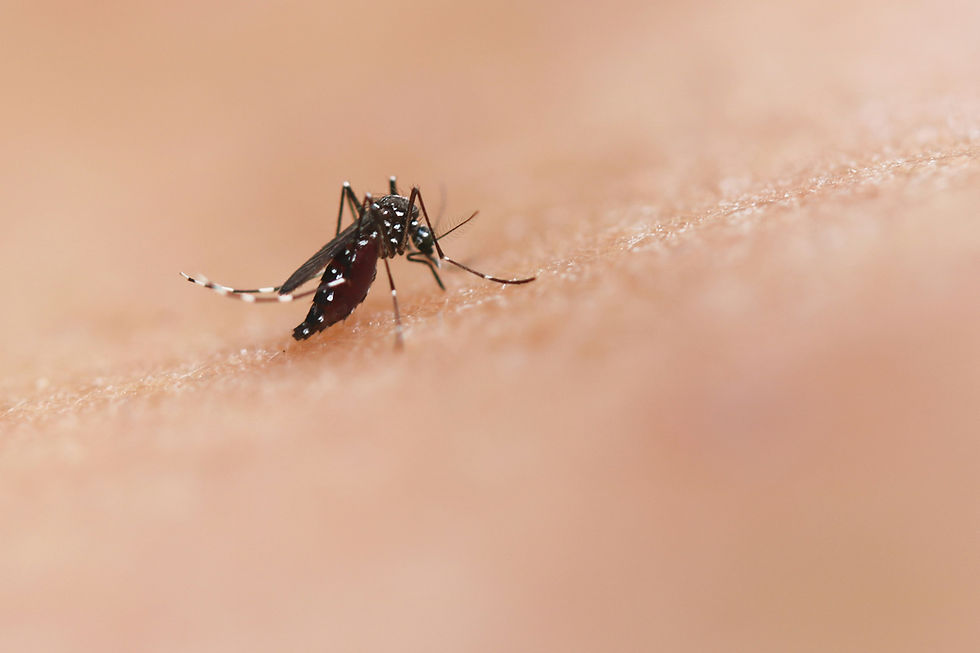
Protective Clothing and Behavioral Measures
The easiest, most convenient, and simplest way to avoid insect bites is to reduce skin exposure. This can be done by
-
Wearing long-sleeved shirts, long pants, and closed shoes to form a physical barrier.
-
Tucking your pant legs into your socks
-
Choose light-colored clothing to further reduce your risk, as some insects are attracted to dark colors.
-
Limiting outdoor exposure, especially during dawn and dusk when mosquitoes are most active.
-
Sleeping under insecticide-treated bed nets is also an effective preventive strategy in malaria-prone regions.

Insect Bite Prevention
Insect Bite Prevention: What You Should Know
Insect bites usually only cause minor skin irritation. But in some cases, they may even lead to serious health issues ranging from severe allergic reactions to vector-borne conditions like malaria, dengue, Zika virus, and Lyme disease. With accessible travel to anywhere around the globe and altered insect habitats due to climate change, insect bite prevention has become a year-round necessity.
Understanding the Risks
Each insect carries a different health threat.
-
The mosquito is the most notorious of all, as it transmits diseases such as malaria, dengue, and chikungunya.
-
Ticks are responsible for spreading Lyme disease and Rocky Mountain spotted fever.
-
Fleas and sandflies are regional risks in parts of Asia, Africa, and South America
As most insect-borne illnesses have an incubation period, it makes it difficult to trace back to the source. It is therefore critical to prevent insect bites as a first line of defense, especially for travelers and residents in endemic areas.
Insect Repellents: What Works?
You can easily find different types of topical repellents that can be applied to exposed skin. The most effective options are:
-
DEET (N,N-diethyl-meta-toluamide): Widely recommended for both adults and children over 2 months old, DEET is effective against mosquitoes, ticks, and other biting insects.
-
Picaridin: A synthetic alternative that is odorless, non-greasy, and equally effective as DEET with reports suggesting that it is less irritating to the skin.
-
IR3535 and Oil of Lemon Eucalyptus (OLE): Plant-based options that offer good protection, though typically for shorter durations.
According to the CDC, it is best to choose repellents registered with the Environmental Protection Agency (EPA), as these have been rigorously tested for safety and efficacy.
Environmental Controls
Apart from personal protection, Insect control also involves managing your surroundings. It is well known that standing water is a breeding ground for mosquitoes. Therefore, it is important to regularly empty water containers, flower pots, and birdbaths to can significantly cut down mosquito populations.
In indoor settings, you can limit mosquito exposure by:
-
Installing window and door screens
-
Using electric mosquito zappers
-
Applying residual insecticides

Special Considerations for Children and Pregnant Women
Newborns under 2 months of age should not use chemical repellents. In infants, it is recommended to rely on protective clothing and mosquito nets. For older children, formulations containing not more than 30% DEET are considered safe. Pregnant women should also avoid chemical repellents and follow standard protective measures, as certain mosquito-borne infections such as Zika can be a hazard to the developing fetus.
